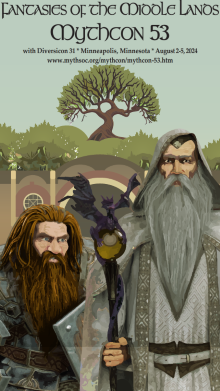Abstract
Critics, and even the general public, have noted the absence of women in The Lord of the Rings, an absence so glaring that it could hardly be overlooked. Many feminist scholars have, as a result of this deficiency, denounced J.R.R. Tolkien, interpreting this lack of female characters as indicative of repressed misogyny. Others, however, have defended the author, pointing out that the female characters that do exist could be considered role models. This essay offers an alternative interpretation and contends that the absence of women in the novel, though potentially reducing its appeal to modern readers, reinforces one of its central motifs: the barrenness and infertility of Middle-earth. Overawed by Tolkien’s landscape descriptions and the extent of his worldbuilding, readers have overlooked just how empty this world is, how rarely the Fellowship encounters settled districts or even lonely habitations. Replacing the farms, villages, and markets a reader would expect to encounter are vast stretches of wilderness and the ruins of forgotten nations. The almost total absence of women, of wives, daughters, sisters, and mothers, reinforces this sense of desolation, suggesting to the reader that Middle-earth has no future. The novel’s few women actually contribute to this impression, for they are all, for different reasons, childless. Compared to the infertile and declining populations of elves, humans, and dwarves, Tolkien’s orcs display a shocking and unnatural fecundity, reproducing—in a manner only hinted at—in enormous numbers. The novel’s conclusion, which begins with Aragorn’s long-desired wedding and ends with Sam’s return to Rosie Cotton, generates a flurry of contented relationships, suggesting not misogyny on the author’s part, but a veneration for sex, romance, and family life. That Frodo is unable to partake in any of these makes his sacrifice all the more poignant.
Creative Commons License

This work is licensed under a Creative Commons Attribution-NonCommercial-No Derivative Works 4.0 International License.


